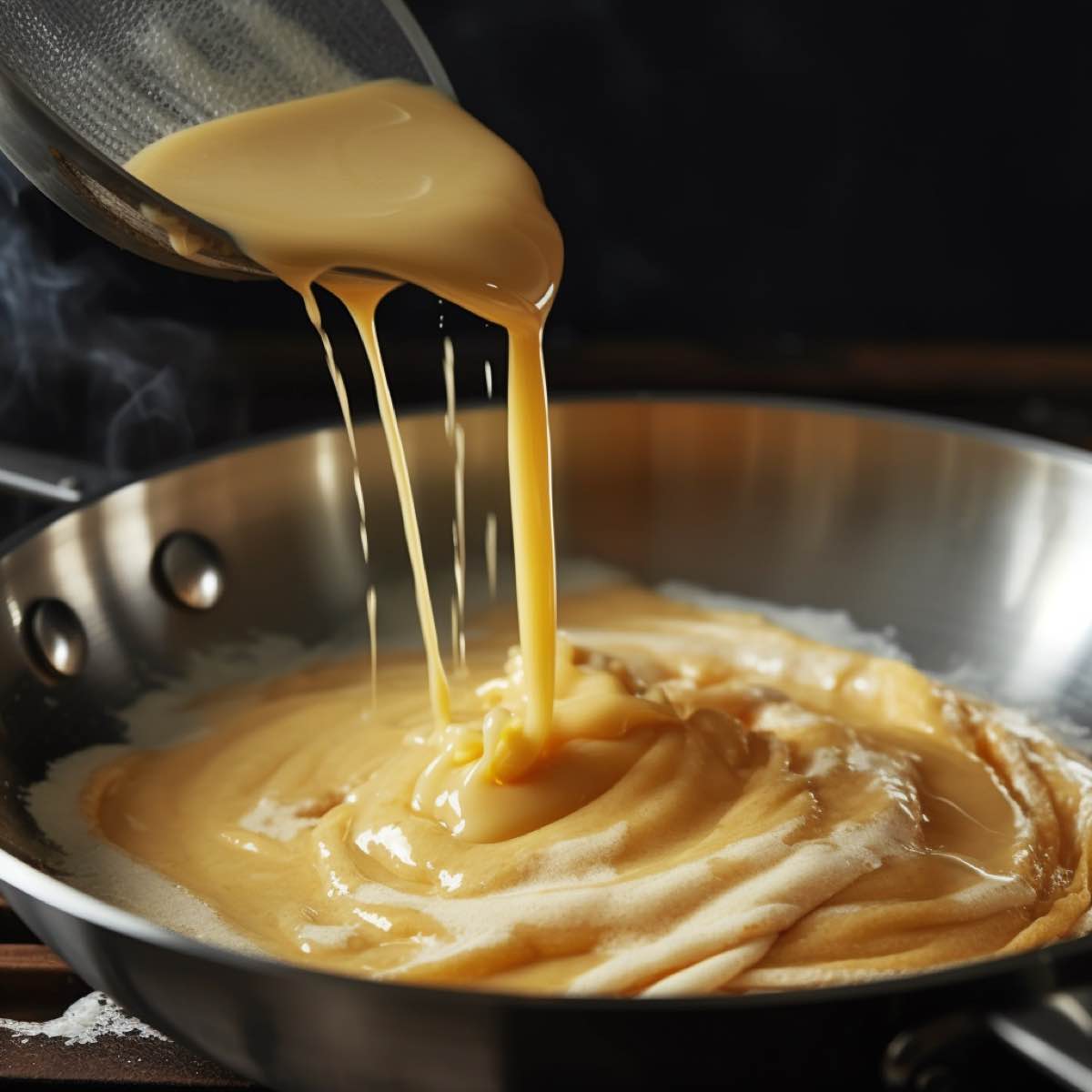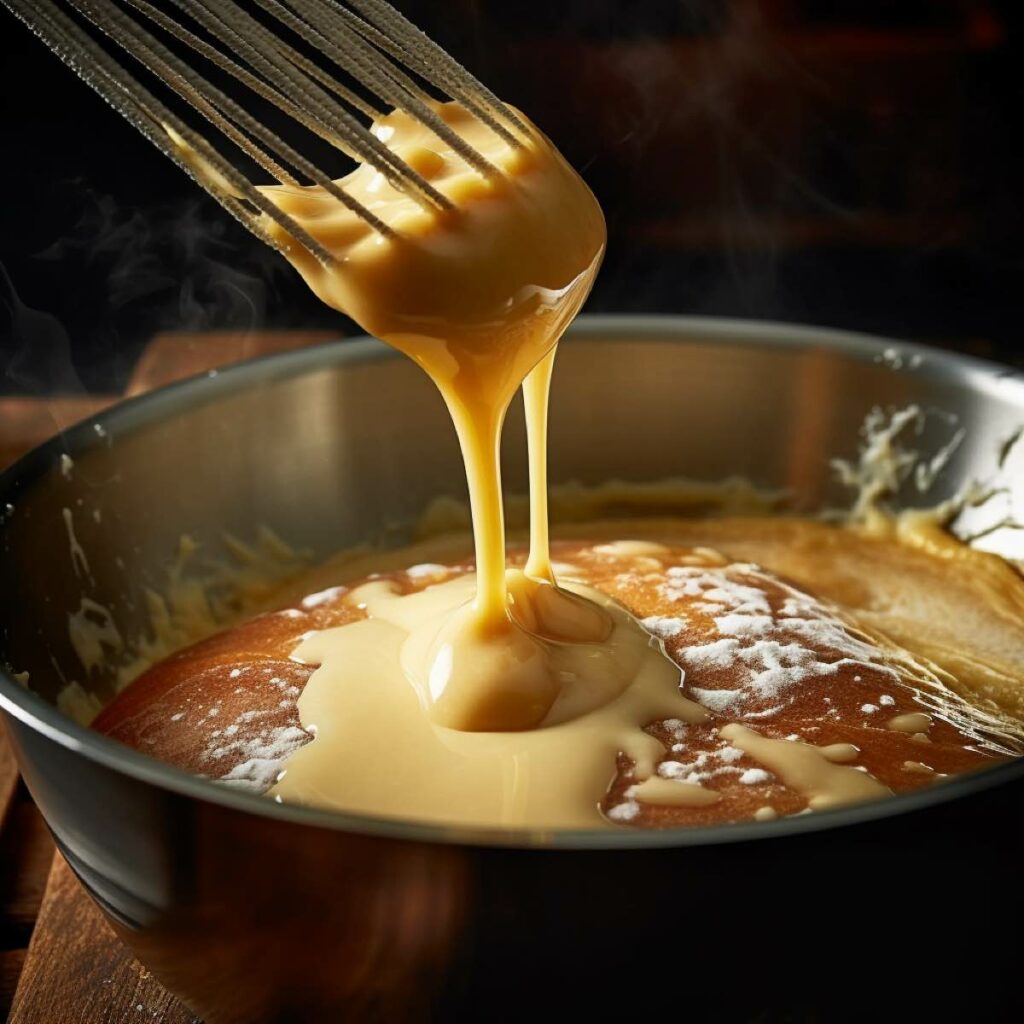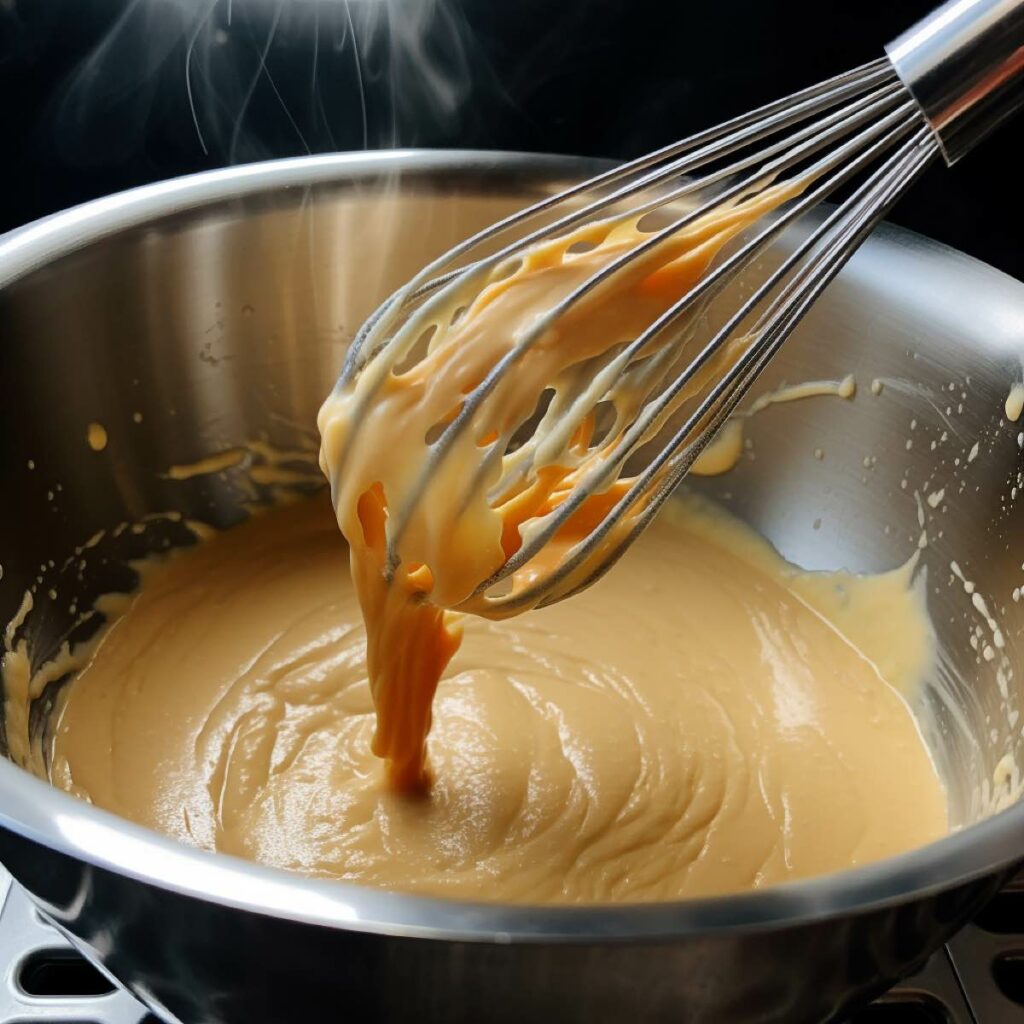Egg Substitute for Batter: A Guide to Vegan and Allergy-Friendly Alternatives

Egg substitutes are commonly used in cooking and baking to replace eggs in recipes. One of the most common uses of egg substitutes is in batter recipes. Whether you are cooking for someone with an egg allergy, looking for a vegan option, or just ran out of eggs, there are many options available for substituting eggs in batter.
There are many reasons why someone might choose to use an egg substitute in their batter recipe. For those with egg allergies, using an egg substitute can be a lifesaver, allowing them to enjoy their favorite foods without the risk of an allergic reaction.
Vegans also often use egg substitutes in their cooking and baking, as eggs are not considered vegan.
Additionally, using an egg substitute can be a healthier option, as many substitutes are lower in fat and calories than eggs. Whatever the reason for using an egg substitute, there are many options available that can provide similar results to using eggs in batter recipes.

Why use an egg substitute for batter?
When it comes to baking, eggs play an important role in providing structure, moisture, and richness to baked goods. However, there are many reasons why someone might need or want to use an egg substitute for batter.
Allergies and dietary restrictions
One of the most common reasons for using an egg substitute in batter is due to allergies or dietary restrictions. Eggs are one of the top allergens and can cause severe reactions in some people. Additionally, some people follow special diets that exclude eggs, such as a vegan or vegetarian diet.
Using an egg substitute can allow individuals with allergies or dietary restrictions to still enjoy baked goods without compromising their health or beliefs. There are many egg substitutes available that can provide similar results to eggs, such as mashed bananas, applesauce, or silken tofu.
Environmental and ethical concerns
Another reason to use an egg substitute in batter is due to environmental and ethical concerns. The egg industry has been criticized for its treatment of chickens and the impact on the environment. By using an egg substitute, individuals can reduce their impact on the environment and support more ethical practices.
There are many egg substitutes available that are plant-based and do not require the use of chickens. These substitutes can provide similar results to eggs and are often more sustainable and ethical. For example, aquafaba, the liquid from a can of chickpeas, can be whipped into a meringue-like consistency and used as an egg substitute in many recipes.
In conclusion, there are many reasons why someone might need or want to use an egg substitute in batter. Whether it’s due to allergies, dietary restrictions, or environmental and ethical concerns, there are many substitutes available that can provide similar results to eggs. By using an egg substitute, individuals can still enjoy delicious baked goods while also supporting their health, beliefs, and the environment.
Common Egg Substitutes for Batter
When it comes to baking, eggs are often used as a binding agent, leavening agent, and to add moisture to the batter. However, if you are looking for an egg substitute for batter, there are several options available that can do the job just as well. In this section, we will explore some of the most common egg substitutes for batter.

Water-Based Substitutes
Water-based substitutes are a great option for those who are looking for a low-fat and low-calorie alternative to eggs. Here are some of the most popular water-based substitutes:
- Carbonated water: Carbonated water can be used as a leavening agent in place of eggs. It can help the batter rise and become light and fluffy.
- Water and arrowroot powder: Mix one tablespoon of arrowroot powder with three tablespoons of water to replace one egg. This mixture can be used as a binding agent in the batter.
Oil-Based Substitutes
Oil-based substitutes are a great option for those who want to add moisture to the batter. Here are some of the most popular oil-based substitutes:
- Applesauce: Replace each egg with 1/4 cup of unsweetened applesauce. This can also be used as a binding agent in the batter.
- Oil: Use 1/4 cup of oil to replace one egg. This can help add moisture to the batter.
Fruit and Vegetable-Based Substitutes
Fruit and vegetable-based substitutes are a great way to add flavor and nutrients to the batter. Here are some of the most popular fruit and vegetable-based substitutes:
- Mashed banana: Use 1/4 cup of mashed banana to replace one egg. This can be used as a binding agent in the batter and can add a subtle banana flavor.
- Pumpkin puree: Use 1/4 cup of pumpkin puree to replace one egg. This can be used as a binding agent in the batter and can add a subtle pumpkin flavor.
Plant-Based Protein Substitutes
Plant-based protein substitutes are a great option for those who are looking for a high-protein alternative to eggs. Here are some of the most popular plant-based protein substitutes:
- Tofu: Use 1/4 cup of pureed silken tofu to replace one egg. This can be used as a binding agent in the batter and can add a subtle tofu flavor.
- Chia seeds: Mix one tablespoon of chia seeds with three tablespoons of water to replace one egg. This mixture can be used as a binding agent in the batter and can add a subtle nutty flavor.
- Aquafaba: Use 3 tablespoons of aquafaba (the liquid from a can of chickpeas) to replace one egg. This can be used as a binding agent in the batter and can add a subtle chickpea flavor.
- Chickpea flour: Use 1/4 cup of chickpea flour mixed with 1/4 cup of water to replace one egg. This mixture can be used as a binding agent in the batter and can add a subtle chickpea flavor.
Overall, there are plenty of egg substitutes for batter that can be used in a variety of recipes. Whether you are looking for a low-fat, high-protein, or flavorful alternative, there is an egg substitute out there for you.
How to Use Egg Substitutes in Baking Recipes
When it comes to baking, eggs play a crucial role in binding, leavening, and providing moisture to the batter. However, for people with egg allergies or those following a vegan diet, finding the right egg substitute can be a challenge. Fortunately, there are several options available that can replace eggs in baking recipes. In this section, we will discuss how to use egg substitutes in baking recipes.
Substitution Ratios and Tips
When substituting eggs in baking recipes, it is important to understand the ratio of egg substitute to eggs. In general, 1/4 cup of egg substitute is equivalent to one egg. However, this may vary depending on the recipe and the type of egg substitute used. It is recommended to follow the instructions on the egg substitute package or recipe for the best results.
It is also important to keep in mind that egg substitutes may alter the texture and flavor of the baked goods. Therefore, it is recommended to experiment with different substitutes and find the one that works best for the specific recipe.
Leavening Agents and Moisture
Eggs are also used as leavening agents in baking recipes. In such cases, substitutes like baking soda or powder can be added along with the egg substitute to provide the necessary lift. For instance, when making muffins, a combination of vinegar and baking powder can be used as an egg substitute.
Egg substitutes like applesauce, mashed bananas, and vegetable oil can also provide moisture to the batter, making it easier to mix and bake. These substitutes work well in recipes that use eggs as a binder or for moisture, like pancakes, quick breads, and muffins.
Breading and Frying
Egg substitutes can also be used in breading and frying recipes. For instance, a mixture of mayonnaise and mustard can be used as an egg substitute for coating chicken or vegetables before frying. Similarly, a mixture of cornstarch and water can be used as an egg substitute for binding the breading to the food.
In summary, there are several egg substitutes available that can be used in baking recipes. When substituting eggs, it is important to understand the ratio of egg substitute to eggs and how it affects the texture and flavor of the baked goods. Egg substitutes can be used as leavening agents, for moisture, and in breading and frying recipes. Experimenting with different substitutes can help find the best one for the specific recipe.
Conclusion
In conclusion, there are various egg substitutes available for batter that can be used as a replacement for eggs. These substitutes are perfect for those who have an egg allergy, are vegan, or simply want to reduce their egg intake.
Some of the most popular egg substitutes for batter include ground flaxseed, vinegar, and buttermilk. Ground flaxseed is a great source of protein and fiber, making it an excellent choice for those who are looking to boost their protein intake. Vinegar is another great substitute that can add a tangy flavor to the batter while helping it rise. Buttermilk is also a popular choice that adds a tangy flavor to the batter, while also providing a tender texture.
It is important to note that while these substitutes can work well in most recipes, they may not work in all recipes. It is always best to experiment with different substitutes to find the one that works best for your specific recipe.
Overall, egg substitutes for batter can provide a healthier and more inclusive option for those who are unable to consume eggs. By using these substitutes, individuals can still enjoy their favorite dishes without compromising on taste or texture.
